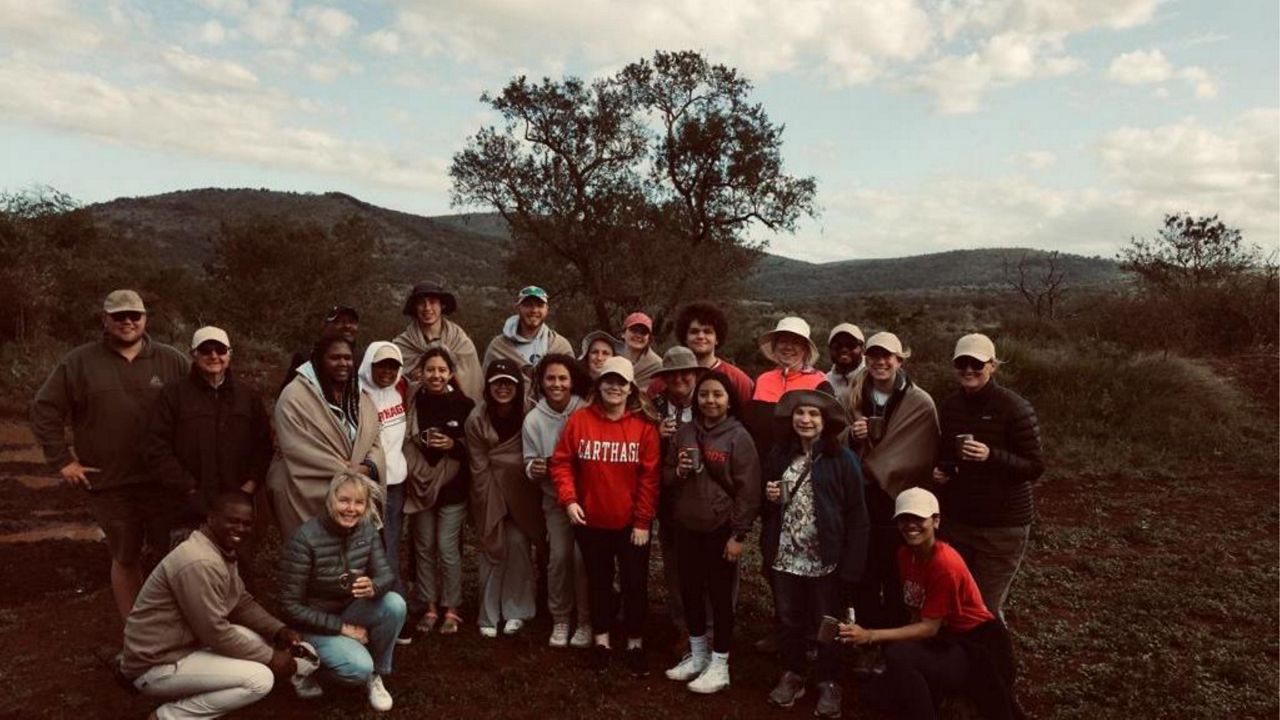KENOSHA, Wis.— A Carthage College sociology major had the experience of a lifetime on her recent study abroad trip. It left and impact that sticks with her today, and will for the rest of her life.
Nina Alfano said she still feels the energy of the people she met during a two-week trip to South Africa.
The Carthage College junior studied abroad there earlier this month, spending the first five days in Eshowe at the Nkume Primary School. The experience is one she said she will never forget.

“Most of these students are orphans,” she said. “They got one meal at school, which was lunch, but they go home and they have no dinner and they come to school hungry with no breakfast.”
Alfano said she plans to pursue a career helping to fix inequities within the education system, particularly in impoverished parts of the world.
Carthage College’s study abroad program to South Africa has been ongoing since 2018. That’s the first time students and faculty saw the conditions at the Nkume Primary School.
Since then, they have brought 22 laptops to the school and built a new kitchen big enough to cook for the 900 students who go there.
“Dr. Michele Hancock with Carthage ordered whiteboards, crayons, creative pencils and utensils they needed,” Alfano said. “We’re working on their curriculum too and a lot of their textbooks and books in the library are not updated.”
Alfano spoke about her experience there while she prepared breakfast at home. She turned on the electric stove and took out a spoon from a nearby drawer.
It’s a small, everyday task that holds a much bigger meaning since she returned to the U.S.
“Most of the huts and the schools don’t have kitchens,” she said. “It was a very big culture shock because it’s something we have in our homes that’s so easily accessible.”
She said the issue is not a lack of resources, but rather, a lack of technology and how to use those resources.
“They had fruits and vegetables and cattle with meat, but just no place to cook their meals, which was very shocking to me,” Alfano recalled.
Though the culture shock sticks with her, what Alfano said she remembers the most is not what these people do not have: It’s how they persevere with so little.
“They’re very efficient, resourceful, and they think outside of the box because they don’t have easy access to things even like a notebook,” she said. “So, they write on their hand.”
During the two-week trip, Alfano also got to see the Drakensburg Mountains in Lesotho and spent time in Knysna, one of her favorite places.
“We went to Eastern Cape Town and St. Lucia,” she said. “We went on a safari and saw the Big Five, which are lions, leopards, buffalo, elephants and rhinos.”

She and her fellow classmates also saw The Kingdom of Heaven, also in Lesotho.
“People were also in poverty there, but they’re in the most precious part of the world with the richest resources,” Alfano said.
Alfano said she keeps in touch with the people she became close with during her travels as much as she can. Sipho Sibiya is a math teacher at the Nkume School who she FaceTimes with occasionally.
He told her about the lack of electricity South Africans are dealing with.
“It’s winter here now, so in the morning, you’re lucky if you can take a hot bath,” Sibiya said. “It’s a very big problem right now in South Africa because we are experiencing a shortage of coal.”
He said the power is cut around 5 a.m. each day.
“You have to get up earlier than that to cook anything or bathe,” Sibiya said.
Alfano and Sibiya keep each other updated on their lives, two continents apart.
“I really hope to go back,” Alfano said. “The students loved seeing us and embracing us just like we loved seeing and embracing them.”



